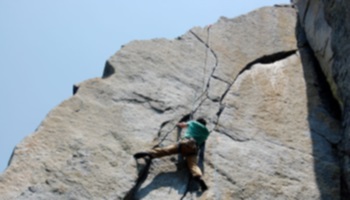How We Started

Operations
Silent Stones Alliance started operations in April 2013 as Silent Stones Ministries (not registered) to help spread the Gospel in rural areas of Coastal Kenya.
We recognized the prayer of many a pastor “And pray for us, too, that God may open a door for our message, so that we may proclaim the mystery of Christ” Col 4:3
Upon starting operations, we observed and experienced first-hand the challenges facing Christian communities, Churches and spread of the Gospel in rural Kenya.
Our Name
Silent Stones Alliance LLP takes its name from Luke 19:40 “I tell you” Jesus replied, “if they (disciples) keep quiet, the stones will cry out.”
The attitude of the Pharisees in Luke 19:39 signifies resistance, opposition to the knowledge of the Lordship of Jesus Christ, as is the case today.
We seek to ensure that we keep the “stones silent” by supporting the spread of the Gospel and promoting the knowledge of the Lordship of Jesus Christ.
Our Vision
These experiences sharpened our vision and strengthened our resolve, despite limited finances and a geographical scope of operations limited to the coastal areas.
In seeking to expand operations, we needed to access funds from donors for the identified projects. It was therefore necessary to register a company.
In July 2016, Silent Stones Alliance LLP was registered as a Limited Liability Partnership to cater to needs of rural churches and donors and launching in May 2017.
Johann Ludwig Krapf and Johannes Rebmann arrived in Kenya in 1840’s and first established Christianity among the Mijikenda and from where it spread to the interior.
Christianity is strong in the urban areas of Kenya where the populace supports churches through tithes, offerings and ease access to religious materials.
The situation is quite different in the rural areas where the populace struggles to meet basic needs and therefore not able to support churches through tithes and offerings.
Background

Low Coverage
In the rural areas, there is less financial resource resulting in low collections and therefore poor access to churches, trained church workers and materials.
The rural churches are also victims of rural-urban migration, poor rural infrastructural development, poor educational and health facilities relative to the urban areas.
Islam
In several areas, especially rural coastal Kenya, Islam is growing fast due to their compassion based proselytizing and exerting more spiritual influence on the society.
Islamic proselytization focuses on meeting basic needs of the communities, so mosques usually have boreholes on site and give free water to the poor and needy.
Mosques in rural areas will usually give food hand-outs to the poor, incorporate local children in the madrassa for free and also give out free copies of the Koran.
Traditional Beliefs
The majority of communities living in the rural areas still hang onto the traditional believe which include spirit worship with its inevitable links to sorcery.
The traditional religions have tended to be patriarchal, focused on elders and blended into societal power structures, thereby often resulting in oppressive practices.
The Challenges

Poverty
42% of Kenyans live below the poverty line. This is easily seen when visiting rural areas of Kenya. The rural coastal area has one of highest poverty rates in the country.
The poverty cycle is vicious and is further impacted by the erratic climatic conditions, weak Government policy and programmes, high levels of illiteracy and indeterminate land tenure.
In rural Kenya, the Churches therefore have very low collection rates and it is therefore extremely difficult for the Christian communities to fund/ run outreach programmes.
Hunger
Kenya has a global hunger index of 21.9, the impact of erratic climatic conditions, poor agricultural practices and weak Government policy and programmes.
In rural coastal Kenya, the hunger situation is magnified by the effects of poverty and indeterminate land tenure. In late 2016 and early 2017, areas around rural coastal Kenya experienced famine due to crop failure resulting from low rains.
Inevitably, Christian communities impacted by hunger in the rural areas will focus all resources on preservation of life. The use of their meager resources on religious materials/ activity is therefore minimized.
Illiteracy
The rate of illiteracy among the coastal population is high with an estimated 57% not having completed a Primary School Education as of January 2017.
This number is even higher in the rural areas, estimated as high as 70%, which impacts knowledge transfer and uptake on agricultural practices and financial management therefore exacerbating the poverty and hunger situations.
In all, the effects of poverty, hunger and illiteracy are the largest stumbling blocks to the spread of Christianity through inability to run outreach programmes and provide access to religious materials.
Professional
The churches in rural areas being poor in financial resources are unable to attract highly educated church workers who would impart knowledge to the local populations.
As a result, even though the churches in rural areas may be doing great works in Christ, they are challenged due to low exposure and inability to raise funds that would help them further their work.
When churches do raise funds, they are usually at risk due to poor ethics, often being misappropriated to meet the church leaders’ personal comfort often at an outright loss.
Recently, there is a growing trend of college educated pastors setting up rural churches in line with their calling.
Lack of exposure prevents the churches for being able to identify suitable projects and make effective proposals for funding.
These misappropriations occur more due to the pressure to meet basic needs first, rather than a lack of commitment to the cause.
What We Do

The Plan
We seek to support church planting – to enable larger coverage of the rural populace – using pastors who have a passion and calling for developing Christian communities.
We seek to support proselytization – the spread of the Gospel by giving bibles, evangelical materials, public address equipment and spiritual support to the churches in rural areas.
We seek to support Christian communities – by developing means for the churches to sustainably raise funds on their own so that they can develop programmes in ways that God has guided them.
What We Support
Rural church planting by assisting rural Christian communities raise funds for and supervise the construction of churches, excluding the purchase of land.
Development of income generating projects to sustainably provide for and cover financial needs of the churches and Christian communities.
Churches outreach programmes e.g. vacation bible school by funding Bibles and evangelical materials in an effort to ensure the spread of the Gospel.
Proselytization efforts of rural churches by funding the purchase of equipment to enable the churches run crusades in their locales
Engagement, exposure, training and development of youth through church activities, regional and exchange programmes.
Implementation of new practices in the community through the church e.g. community self-help, projects framing practices etc
How We Do It !

Coaching & Mentoring
We Coach and Mentor Rural Churches to raise their standard as well as supporting and helping motivate the Pastors of the churches.
As we have extensive professional experience, we extend our project management capacity and capabilities to churches and donors.
Given the propensity for misappropriation of donor funds by church workers, we “Stand-in-the-Gap”, providing scrupulous, transparent services.
Our Methods
1. We Identify Qualifying Churches by working with our contacts in bible colleges and through our extensive contacts.
2. Upon visiting, we Determine suitability for our programmes by assessing the reasons and drive levels for spreading the Gospel.
3. As we are now developing a network of churches that we work with, we are now able to Develop & Share Best Practices.
4. We have the skills, means and ability to Publicize and Market the Needs of the churches to Christian communities.
5. We deploy our ability to coordinate Fund Raising Activities to fund projects for the qualifying rural churches.
6. We work with the churches to Identify and Conceptualize the best possible Projects in their circumstances.
7. We provide Donor Support Services for projects that they have funded. We supervise, monitor and update on status.
8. We manage the Project Implementation using management tools to ensure that timelines, budgets are not overrun.
9. We provide periodic reports that include Project Accounting that meet the expectations and standards of the donor.
Who We Are

Our focus is entirely on churches in rural and underprivileged urban communities. Currently, we are only present in Kenya but will soon expand regionally.
We are a low-income/ not-for-profit organization that uses a volunteers and a cost recovery approach to maximize the funds available for the project.
We are interdenominational faith based organization supporting communities and churches that believe upon Jesus Christ as the LORD and Savior of our lives.
Corporate Structure
The Two Founder Partners are the Managing Partners and form the Oversight Board which assumes all executive functions and runs the day-to-day affairs of Silent Stones.
The Founder Partners intend to admit ten (10) other partners in the near future, all of whom espouse the common purpose, goals and governance structures of Silent Stones Alliance LLP.
The Oversight Board intends to appoint a General Project Manager, who shall be directly accountable to the Oversight Board, to manage the projects under Silent Stones Alliance LLP.
Vision, Mission & Values

Vision
The most effective Christian faith-based-organization at Capturing Africa for Jesus.
Mission
To support the spread the Gospel and cater to needs rural and under-privileged Christian communities through highest impact, lowest cost solutions.
Our Values
1. Faith in God
2. Love & Compassion to others
3. Unity of Community of believers
4. Stewardship, Integrity & Accountability
Our Goals
Goal 1:
Speed the spread of the Gospel & Christianity in Rural and low-income areas of Kenya.
Goal 2:
Assist local rural populations to develop hope in and through our Lord Jesus Christ.
Goal 3:
Provide Project Financiers with Project Management and support services.
Our Achievements
Setup a successful income generating project for Matanoni Faith Baptist Church, Matano Mane, Kenya enabling self-sufficiency in funding of outreach programs
Donating over 1,000 bibles free in various parts of Kenya to faithful in churches, children at vacation bible school, newly converted at crusades and to prisoners.
Part-sponsored Seven (7) Pastors of rural churches based in the Coastal areas of Kenya at Crossroads Bible Institute at Vipingo, North Coast.
Donation of three (3) public address systems and keyboards, for proselytization, two with portable electrical generating sets.
